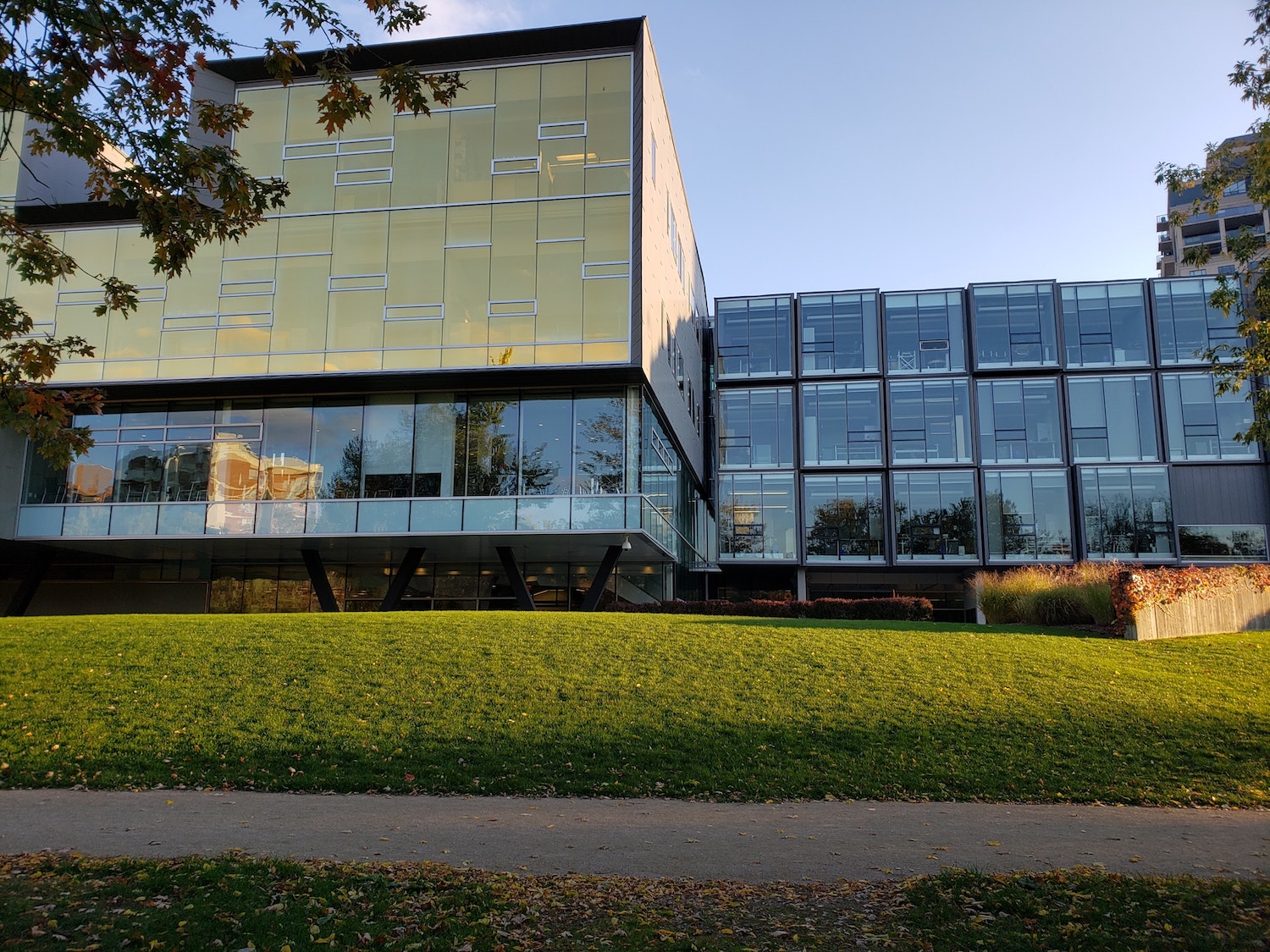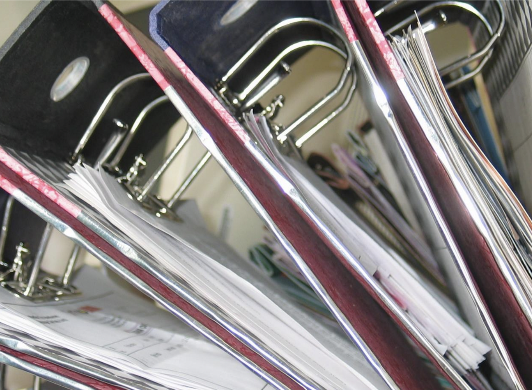The cookie settings on this website are set to ‘allow all cookies’ to give you the very best experience. If you continue without changing these settings, you consent to this – but if you want, you can change your settings at any time at the bottom of this page on our privacy page.
The Basics of a Commercial Lease
Previously on our blog, we've covered many of the obstacles you may face when choosing a commercial property to let. After all, it's no minor issue: getting the right property - or the wrong one - can heavily impact the future of your business.
In this post, we're going to cover something slightly different: the lease itself. Here is everything you need to know about commercial leasing in the UK.
First things first, what is a commercial lease?
A commercial lease is a form of legally binding contract made between a business tenant - your company - and a landlord. The lease gives you the right to use the property for business or commercial activity for a set period of time. In return for this, you will pay money to the landlord. The lease will also outline the rights and responsibilities of both the landlord and the tenant during the lease period.
What's the difference between a commercial property lease and a residential one?
Though the underlying principle is the same - the exchange of property use for money - there are several differences between commercial leases and the sort you might sign when renting a flat.
Firstly, there is less governmental protection in place for commercial property tenants. It is understood that if you are taking on a commercial property lease, you should be knowledgeable about running a business and will, therefore, be better suited to the responsibility than someone - for instance - renting their first apartment.
There is also more room for negotiation in a commercial lease, again for the reason that both parties are typically considered to have more knowledge of business practices, and so are more likely to approach bargaining with realistic aims in mind.
Are there ever oral lease agreements?
Typically not. The issue with any type of oral lease agreement is that they can be very difficult to enforce. Should a court hearing arise, managing the disagreement would simply be a case of taking one person's word over another's. With a written agreement in place, the courts will be obligated to uphold the terms set out, and there can be little room for dispute.
What provisions are dealt with in a commercial lease?
Typically, a commercial lease will cover the following matters:
- The type of property being let
- The address of the property
- The length of the tenancy, and whether it is a fixed term or a term that can be renewed periodically
- The amount of rent charged, and when the rent will be paid
- Which types of business can be carried out in the property
- Who is responsible for any leasehold improvements
- What the provisions are of the security deposit
On some occasions, the commercial lease may also cover these areas:
- The provisions for lease renewal
- Any improvements the landlord is responsible for
- Any improvements the tenant is responsible for
- Whether subletting the property is permissible
- What notice provisions are offered for termination of the tenancy
- Who is responsible for managing the insurance of the property

Which governing bodies are responsible for managing disputes?
The governing law of the lease is the jurisdiction where the property is located, rather than where you are your landlord might live. It is the local council for the property who will manage any disputes.
Which parties are involved in signing the lease?
There are two main parties:
- The landlord, otherwise known as the lessor
- You, the tenant, otherwise known as the lessee
In some cases, the landlord may request a guarantor or a surety: this is a person who agrees to pay any losses directly to the landlord if you become unable to pay the rent or breach the tenancy agreement in another way.
The premises themselves
The lease will contain a legal description of the premises; this is simply how the property is identified in real estate legal transactions and is the same way it would be described in any form of purchase documents such as a mortgage application or a land registry form.
Other terms you'll need to know regarding the property include:
- Fixtures - This refers to a piece of property that is attached to the premises in a way that to remove it would damage the property. Examples of this would be a built-in cabinet, a sink, a toilet or a bath.
- Chattels -These are personal property, and are considered distinct from the premises in most cases. These are things like blinds, curtains, microwaves, desks or white goods such as fridges and washing machines.
- Leasehold improvements - This is an expense incurred when making a permanent improvement to the premises. Leasehold improvements are considered fixed assets, and generally depreciate in value during the course of the lease.
It's important to note that you will only be able to use the leased property for the purposes dictated by the landlord. There will usually be a 'permitted use of premises' clause in the lease that will list these purposes. If you wish to use the property for a purpose not dictated in the lease, you must obtain written permission from the landlord.
What you need to know about rent
In commercial property, rent is usually payable quarterly in advance. Common dates for this are 25 March, 24 June, 29 September and 25 December. However, as commercial leases are more negotiable than residential ones, it may be possible to agree alternative dates with your landlord.
Other terms and types of commercial lease to be aware of include:
- Base rent - This is the minimum - or base - amount of rent payable set out in the lease, and will exclude percentage rents or any other additional operating costs.
- Percentage lease - This type of lease typically occurs in retail, and is often used in shopping centres. Within these agreements, the tenant will pay a fixed base rent plus a percentage of their gross income. The percentage will be agreed upon in advance by the landlord.
- FRI leases - FRIin this case stands for a Full Repairing and Insuring lease. Put simply; it means that the tenant must meet all costs of maintenance, repair and insurance on the property.
- Gross rent lease - A gross rent lease is a form of commercial lease in which the tenant is responsible for paying the base rent and any specified expenses, while the landlord is responsible for paying all expenses involves in operating and maintaining the property, such as insurance, utilities and maintenance. In some gross rent leases, the landlord may also be responsible for paying any property tax.

What you need to know about your deposit
As with standard residential leases, you will be responsible for paying a security/damage deposit to guarantee that you will fulfil all obligations under the lease. During the course of the tenancy, the landlord will hold the security deposit, and should you either damage the property or not pay the rent, the landlord will use the security deposit to recoup the debt.
Once the lease term has been completed, the tenant will receive the deposit back minus any deductions for repairs or restoration to the property.
How much will a commercial deposit be?
Damage deposits in the commercial sector are typically equivalent to the maximum of one month's rent. However, the landlord may choose to ask for more depending on the property. In certain industries, the security deposit can be as much as three month's rent.
Subletting and assigning leases
In some cases, it may become necessary for you to sublet the lease should this be permissible by the landlord. Subletting the lease simply refers to you transferring the responsibilities of the lease to a third party for the remainder of the term.
If, for instance, you rented two floors in an office building and then halfway through the term no longer needed one of them, you could sublet the unneeded floor to another business.
Assigning a lease is slightly different, in that involves the complete transfer of all rights to a third party. Again, assigning a lease would require the permission of the landlord.
Terminating a commercial lease
Typically, you will be able to terminate the lease at its conclusion should you wish to. Thiswillsimplebea matter of communicating with the landlord and any relevant property agents, and completing any necessary paperwork.
The only way in which a commercial lease can be broken early is if the lease itself contains a break clause. A break clause will specify that the lease can be ended without anyone facing a penalty, and you will usually be required to give two months' notice before activating it.
You may also be able to end the lease early if:
- You are able to pass the lease on to someone else - the landlord may require you to act as guarantor for this third party
- You are able - and allowed - to sublet the lease
- Your landlord gives you permission to do so
If the above situations don't apply, then it is your legal obligation to continue paying rent for the rest of the tenancy.
You can download a PDF version of this guide here:
If you would like to know more about how Pall Mall Estates can help with your commercial property needs, call us today on 020 8986 7221 to speak to one of our experts.
Pall Mall Estates - Helping you move with our low cost, high value, business space to let throughout the UK.
Pall Mall Estates have a wide range of low cost commercial properties across the UK.
Take a look at our available spaces here or get in touch with our experienced team here.



